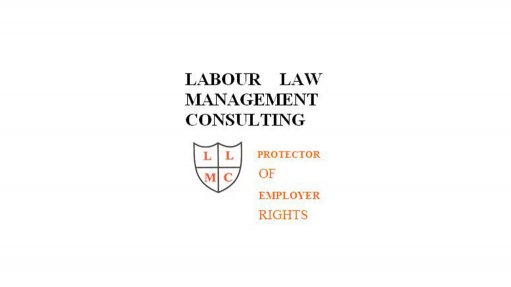
Several months ago I wrote an article in which I cited the case of AUSA obo Melville vs SA Airways Technical (Pty) Ltd (2002,6 BALR 573). In that case the arbitrator quoted the following finding of Brassey: “…….. The Code Of Good Practice: Dismissal in Schedule 8 ….. makes it clear that, while the process can be informal, the employee should nevertheless be told what case he has to meet and be given a proper opportunity to prepare and present his response.”
While it is clear that the abovementioned Code Of Good Practice provides that the disciplinary hearing need not be formal section 188(1)(b) of the Labour Relations Act (LRA) imposes the onus of proving that a dismissal was procedurally fair on the employer.
While a statement that a formal hearing is not necessary may sound good in theory it would not work in practice. That is, how, in practice, can the employer go about proving that the dismissal was procedurally fair without using formal processes?’ For example, The Code Of Good Practice does accord the employee the following procedural rights:
- The right to be informed as to what the charges are – Proof would be a written charge sheet, receipt for which has been signed by the accused employee
- The right to a proper opportunity to prepare - Proof would be a written notice of hearing, given to the employee well in advance of the hearing, receipt for which has been signed by the accused employee well in advance of the hearing date
- The employee’s right to be heard and to present a defence – proof would be minutes of the hearing showing that the employee had a chance to state his case, use an interpreter and representative, bring witnesses and cross-examine evidence brought against him/her
Consequently, once one introduces the use of records such as minutes, hearing notices and charge sheets one is converting the disciplinary process into a formal one. In my view this conversion is further necessitated by the need to separate the complainant role from the presiding officer role in order to eliminate bias.
I submit that no employee can present his/her case fairly before a biased chairperson. To allow biased chairpersons to chair internal disciplinary hearings and then dismiss employees would make a mockery of such hearings and would be akin to allowing a kangaroo court.
In summary, the employer’s onus to prove that all the employee’s rights have been complied with makes a formal and expertly controlled disciplinary hearing essential. This holds true even if the only procedural rights an employee has are those few specifically provided for in The Code Of Good Practice.
While the officials who carry out the corrective procedure do not need to be lawyers they do need to be well skilled in disciplinary procedure in order to make sure that each and every legal right of the employee is strictly adhered to.
Therefore, managers must either be thoroughly trained in disciplinary process or the employer must hire a reputable labour law expert to chair its hearings.
To book for our 5 November webinar on BALANCING WORKPLACE EFFECTIVENESS WITH LEGAL COMPLIANCE please contact Ronni on ronni@labourlawadvice.co.za or 0845217492.
Written by Ivan Israelstam, Chief Executive of Labour Law Management Consulting. He may be contacted on (011) 888-7944 or 0828522973 or via e-mail address: ivan@labourlawadvice.co.za. Website: www.labourlawadvice.co.za.